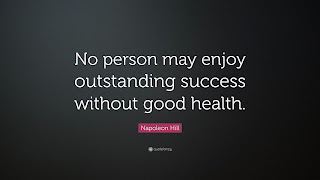Being contained in our homes—maybe for months—is already reorienting our relationship to government, to the outside world, even to each other. It will be near-impossible to put that genie back in the bottle, with many people learning that the difference between having to put on a tie and commute for an hour or working efficiently at home was always just the ability to download one or two apps. No one knows exactly what will come. Will touch become taboo?
But this crisis presents a revived appreciation for the outdoors and life’s other simple pleasures. We could travel almost without limitations and meet people without restrictions. For a long time, we’ve probably taken for granted the ability to see our colleagues every day and maybe didn’t realize how valuable that was.
It is important to note that for a tikme in my life, I chose to be blind. Because of that choice, I was blind not only to beauty; I was also blind to forgiveness, to the value in others and a host of other things. These past two months of lockdown has left me determined to not feel regrets at the end of my own time, whenever that will be. There was no way I was going to be given the gift of this wisdom and not learn by it.
It's too easy to want more from life, and that's fine to a degree, since expanding who we are is part of dreaming and growing. But as we will never have everything we want and will always be growing, appreciating what we already have along the way is the most important thing.
Here's a wake-up call question: If you had one year to live, how would you organize your life?
In business, growth is good. In executive waistlines, growth isn't. Health and fitness are virtually ignored by a preponderance of top executives. We've all heard the basic rules of peak performance: get the proper amount of rest, eat a good diet and exercise. Somehow many top leaders think they do not need what the rest of us mere mortals must have to be at our best.
Here's a million-dollar question: If someone you love died today, what would you regret?
Would you regret not communicating how much you loved and cared for the individual? Or that you had not paid enough attention to supporting the other person's life?
We can never know how long we are here for or how long those we love will be. Don't lose touch with the friends you value most. Those who accept you as who you are, and who know you very well, are worth more than anything in the end. Many of my best memories of friendships were of walkimg, talking and laughing. Don't let life get in the way.
If you often find yourself thinking "if only", it's time to take back responsibility for your life and your schedule and priorities. It's that simple. When it comes to living, it's now or never. There's no "later."
Life is over so quickly. Some of us will live a long life, many of us won't. We spend so much time making plans for the future, often assuming all of the time in the world, when all we ever have is out life today.
Each day is as precious as our last, because one of these days, it will be.








